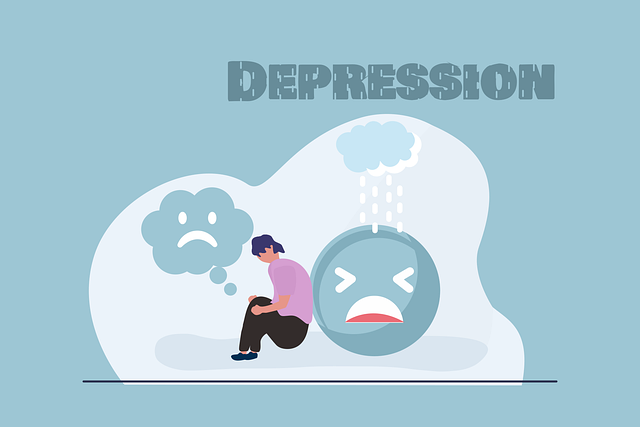TL;DR:
Narrative psychotherapy is a revolutionary approach in mental health treatment that focuses on individuals' personal stories and their impact on well-being. By encouraging clients to explore and reinterpret life narratives, this method helps identify recurring themes, challenge negative beliefs, and foster self-awareness. It promotes adaptive perspectives, enhances emotional resilience, and significantly improves mental health outcomes for diverse concerns. This approach leverages the power of storytelling to transform lives, foster relationships through empathy and trust, and combine with cognitive behavioural therapy (CBT) for holistic care. Recognized for its effectiveness in treating conditions like depression, anxiety, and trauma, narrative psychotherapy offers lasting solutions for improved mental well-being.
Understanding Narrative Psychotherapy: Unveiling a Unique Pathway to Mental Wellness
Narrative psychotherapy is a revolutionary approach in mental health care, focusing on the profound impact of stories and personal narratives. This therapeutic method recognizes that our lives are shaped by the stories we tell ourselves and others about our experiences. By exploring these narratives, therapists can help individuals gain new insights, heal from past traumas, and foster positive mental health.
In this comprehensive guide, we’ll delve into the core principles, techniques, and benefits of narrative psychotherapy, offering a unique perspective on enhancing well-being.
Understanding Narrative Psychotherapy: A Unique Approach to Mental Health

Narrative psychotherapy is a unique and innovative approach to mental health treatment that focuses on understanding and reshaping individuals’ personal stories and narratives. This therapy technique recognizes that our stories shape our perceptions, emotions, and behaviors, thus influencing our overall well-being. By exploring and reinterpreting these narratives, psychotherapists aim to help clients gain new insights, overcome challenges, and foster positive mental health.
This approach encourages individuals to reflect on their life experiences, identify recurring themes or patterns in their stories, and challenge any negative or limiting beliefs. Through this process, clients can develop a more adaptive and empowering perspective on their lives, leading to improved mental health outcomes. Narrative psychotherapy is versatile and can be applied to various mental health concerns, making it a valuable tool for professionals in the field of mental health psychotherapy.
The Power of Stories: How Narratives Shape Our Minds and Emotions

In the realm of mental health and psychotherapy, understanding the power of stories is revolutionary. Our minds are intricately woven tapestries of narratives, shaped by the stories we tell ourselves and others. These narratives have a profound impact on our emotions, beliefs, and behaviors, often unconsciously guiding our thoughts and decisions. When it comes to healing and growth, recognizing and reshaping these internal stories is transformative.
Through narrative psychotherapy, individuals can explore and challenge limiting or distorted tales they’ve spun about themselves and their lives. By weaving new narratives—ones that are more adaptive and empowering—people gain a deeper sense of self-awareness and agency. This process empowers them to navigate life’s complexities with enhanced emotional resilience, fostering positive mental health and well-being.
Key Principles of Narrative Psychotherapy: Exploring the Basics

Narrative psychotherapy is a unique approach that focuses on understanding and reshaping one’s life story to improve mental health. Its key principles revolve around several fundamental concepts. One of the core ideas is that our stories shape our perceptions, emotions, and behaviors, thus influencing our overall well-being. Psychotherapists working under this method help clients identify and challenge aspects of their narratives that may be detrimental or limiting.
This therapeutic approach emphasizes the importance of personal responsibility and empowerment. It encourages individuals to explore and rewrite parts of their stories, fostering a sense of agency and self-determination. By doing so, narrative psychotherapy aims to enhance resilience, promote positive mental health, and provide individuals with tools to navigate life’s challenges more effectively.
Building Relationships: Trust and Connection in Therapeutic Settings

In narrative psychotherapy, building relationships is a cornerstone of effective treatment. The therapeutic setting becomes a space where trust and connection are cultivated, fostering an environment conducive to mental health improvement. Through open, empathetic communication, therapists create a safe haven for clients to explore their stories and emotions. This relational foundation allows individuals to feel understood, validated, and supported, encouraging them to engage in the therapeutic process.
Trust is particularly vital as it enables clients to share intimate details of their lives, including painful experiences and vulnerabilities. By consistently demonstrating empathy, authenticity, and respect for boundaries, therapists cultivate a strong therapeutic alliance. This connection deepens the client’s willingness to participate actively, leading to more meaningful insights and positive changes in their mental health journey.
Uncovering Life Stories: Exploring Personal Narratives for Healing

In narrative psychotherapy, uncovering life stories is a powerful tool for healing and growth. This approach recognizes that our personal narratives shape our perceptions and experiences, influencing our mental health and overall well-being. By exploring these stories, individuals can gain new insights into their lives, identify patterns, and challenge limiting beliefs. Through dialogue with a trained therapist, clients are encouraged to narrate their life experiences, revealing the events, relationships, and cultural influences that have contributed to their current state of mind.
This process allows for a deeper understanding of one’s mental health issues. For example, a person struggling with anxiety might uncover recurring themes of feeling unheard or misunderstood in significant relationships, leading to a more nuanced approach to addressing these concerns. By re-examining and potentially reshaping personal narratives, individuals can foster resilience, promote positive self-regard, and develop adaptive coping strategies. This exploration facilitates healing by offering a fresh perspective on past experiences and empowering individuals to write new chapters in their stories.
Techniques and Methods: Engaging Clients Through Narrative Exercises

In narrative psychotherapy, engaging clients through creative narrative exercises is a powerful technique to explore and understand their personal stories. These exercises encourage individuals to reflect on their past experiences, emotions, and beliefs by weaving them into compelling narratives. By telling their own stories, clients can gain new insights into their mental health challenges and strengths. For instance, a simple exercise might involve asking clients to create a metaphorical narrative about a significant life event, allowing them to symbolically represent their emotional journey.
This approach facilitates a deeper connection between the therapist and client as they collaboratively construct a unique narrative. Through active participation, clients become active participants in their therapy, fostering a sense of empowerment and ownership over their mental health journey. The process encourages self-reflection, enhances emotional awareness, and provides an alternative lens to interpret and make sense of their experiences, ultimately contributing to improved mental health outcomes.
Benefits for Mental Health: Success Stories and Real-World Applications

Narrative psychotherapy offers a unique approach to mental health treatment, focusing on the stories and meanings individuals create to make sense of their lives. This therapeutic method has gained significant traction in recent years due to its numerous benefits for those seeking to improve their mental well-being. One of its key strengths lies in its ability to empower individuals by helping them identify and challenge limiting beliefs and narratives that may be hindering their growth. By exploring personal stories, clients can gain new perspectives, fostering self-acceptance and resilience.
The real-world applications of this psychotherapy are remarkable. Success stories abound, with many individuals finding relief from conditions such as depression, anxiety, and trauma. Through narrative techniques, therapists enable clients to reframe negative experiences, transforming them into powerful personal growth opportunities. This innovative approach allows for a more holistic understanding of mental health, recognizing the profound impact that one’s story has on their emotional state. As a result, narrative psychotherapy is becoming an increasingly popular choice for those seeking effective and long-lasting solutions in their mental health journey.
Integrating Other Therapies: Combining Approaches for Comprehensive Care

In the realm of mental health psychotherapy, a holistic approach often involves integrating various therapeutic techniques for comprehensive patient care. Narrative therapy, for instance, focuses on the stories individuals tell about themselves, offering a unique lens to explore and transform personal narratives. When combined with other evidence-based practices like cognitive behavioural therapy (CBT), the synergy can be powerful. CBT provides structured tools for challenging negative thought patterns, while narrative therapy empowers clients to rewrite their life stories, fostering resilience and a more positive self-perception.
This integration allows therapists to address both the present-day symptoms and underlying narratives that contribute to mental health issues. For instance, a client struggling with anxiety might use CBT techniques to manage immediate triggers. Simultaneously, narrative therapy assists in uncovering and reshaping the underlying stories that fuel these anxieties, providing lasting coping mechanisms. Such an approach ensures a more nuanced understanding of the individual, tailoring treatment to their unique psychological landscape.
